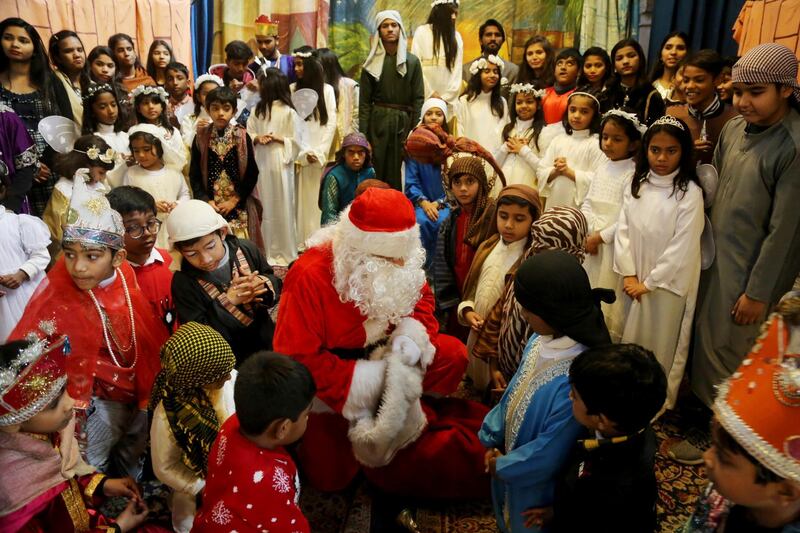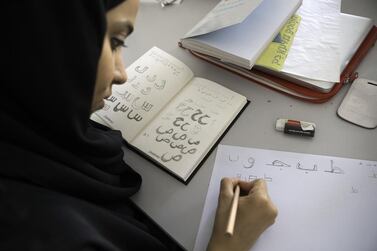As a child, I loved Christmas. Early on Christmas Eve, I would try and will myself to sleep, naively believing Santa Claus would boycott my bedroom if I stayed up too late. At first light, my younger sister and I would explode out of our bedroom, heading downstairs to attack the mountain of gifts beneath the blinged-out pine tree. Christmas as a child was amazing. Beyond the toys – which often lay broken or abandoned by Boxing Day – the real magic of the occasion was that everyone seemed to be happy, or at least happier than usual.
As an adult, I have come to believe that happiness associated with festive occasions – be it Christmas, Eid, Hanukkah or Diwali – has a lot more to do with giving gifts than receiving them. Sure, receiving a nice present generally increases our happiness for a while, especially if it is something we want and the item has been decoratively wrapped. However, for every gift recipient, there is at least one giver. This generous individual also gets a shot of happiness and may well receive a more enduring uplift in wellbeing too.
In recent decades, we have come to refer to three brain chemicals – dopamine, serotonin and oxytocin – as the happiness trifecta – the neurochemical happy trinity. We know that when people give gifts, all three of these chemicals can get released within the brain. These chemicals are associated with the pleasant emotions that we might variously term euphoria, happiness and contentment.
A review published in the Journal of Experimental Social Psychology last year looked at 27 studies exploring the links between generosity and happiness. The report concluded that overall, there is a significant link between the two. But beyond short-lived emotional states, the act of giving – whether it is things or time – also seems to be associated with improved physical and mental health. In a review of research done in this field titled Is volunteering a public health intervention?, the authors concluded in the affirmative. Giving one's time to help others was associated with better overall health outcomes. In his book Why Good Things Happen to Good People, Stephen Post, a professor of preventive medicine, suggests that giving is as important for health as avoiding tobacco and obesity.
But does being generous increase our wellbeing or, instead, does prior wellbeing give rise to increased generosity? It is easy to see how happier, healthier and more purposeful individuals might have more energy and physical capacity to act generously. However, research suggests the relationship is a two-way street. Wellbeing facilitates generosity and vice versa. This type of relationship can easily lead to a virtuous cycle: the more we give, the more we can give.
Just as giving is good for us at the personal level, it is also good at the societal level. Generosity can strengthen social bonds and ultimately help reduce inequality.
The UAE is no stranger to giving and is widely celebrated as a humanitarian nation. Relative to its national income, the UAE regularly tops the Organisation for Economic Co-operation and Development's list of the world's largest donors of development aid. After being awarded the accolade for the fifth year running in 2018, Sheikh Mohammed bin Rashid, Vice President and Ruler of Dubai, said on Twitter: "We share our good fortune with all humanity."
In addition to giving aid, the government also actively promotes a culture of corporate and community giving. The year 2017 was designated "The Year of Giving". Unsurprisingly, many of the early recipients of the UAE's long-term, golden visa scheme are notable philanthropists. Furthermore, volunteering opportunities abound in the UAE and volunteers are never in short supply. Two years ago, the UAE was ranked the ninth-most generous out of 139 nations on the Charities Aid Foundation World Giving Index. Ranking on this list is based on grassroots observations of three specific giving behaviours: helping a stranger, donating money and giving up time to volunteer.
For the fifth year running, the (OECD) named the UAE as the world's largest Official Development Aid donor relative to national income - giving Dhs19.3 billion to 147 countries in 2017. We share our good fortune with all humanity.
— HH Sheikh Mohammed (@HHShkMohd) April 9, 2018
When I first came to the UAE, I remember an Emirati elder standing outside my local mosque on the morning of Eid with a massive stack of Dh10 notes. He dished the banknotes out to every passing child as though feeding the birds – some cheeky children even went back for seconds and thirds. It was a beautiful sight to see and I wonder how he felt doing it.
Although giving makes us feel good and promotes wellbeing, these things are byproducts. For many people, giving goes much deeper than health and happiness, touching the very core of what it means to be a human being. I suspect that if we start giving with the sole intention of lifting our moods and prolonging our lives, we will be missing an essential piece of the puzzle.
Christmas is a time of giving – and of unconditional generosity. Like many holidays, however, the occasion has become heavily commercialised and gifts are now almost synonymous with products bought from shops. However, a smile, a concerned phone call or a kind word could all be considered gifts or acts of generosity. Furthermore, like the Emirati elder with his stack of Dh10 notes, smiles, sincere concern and kind words can be spread around a lot of people.
Justin Thomas is a psychology professor at Zayed University






